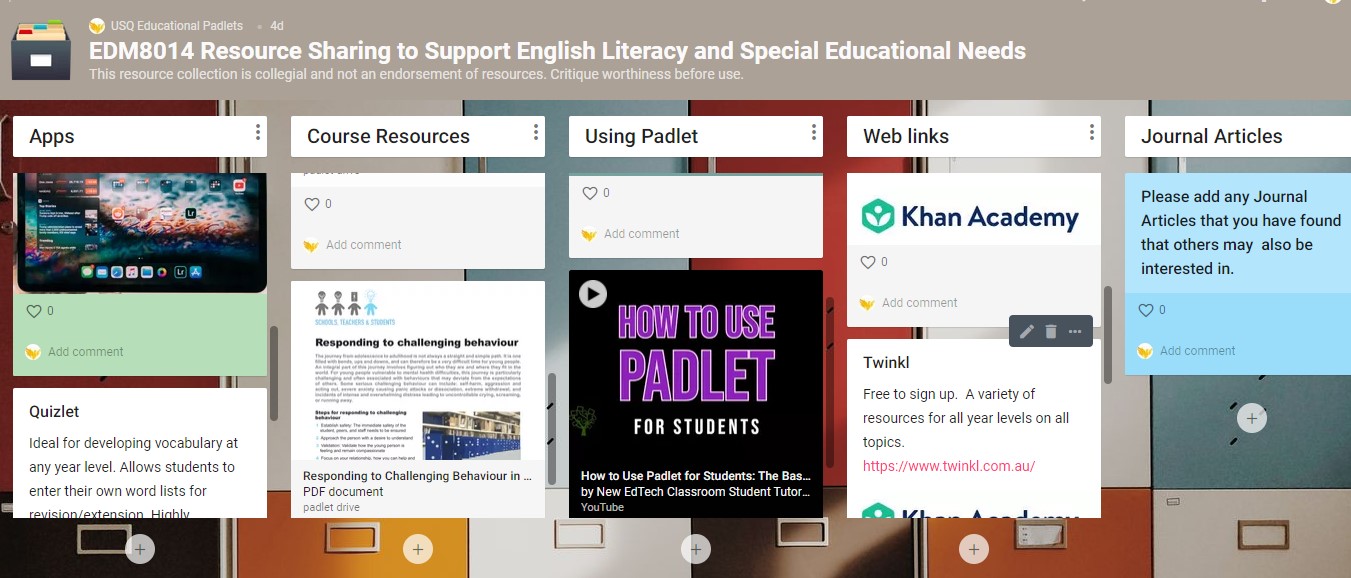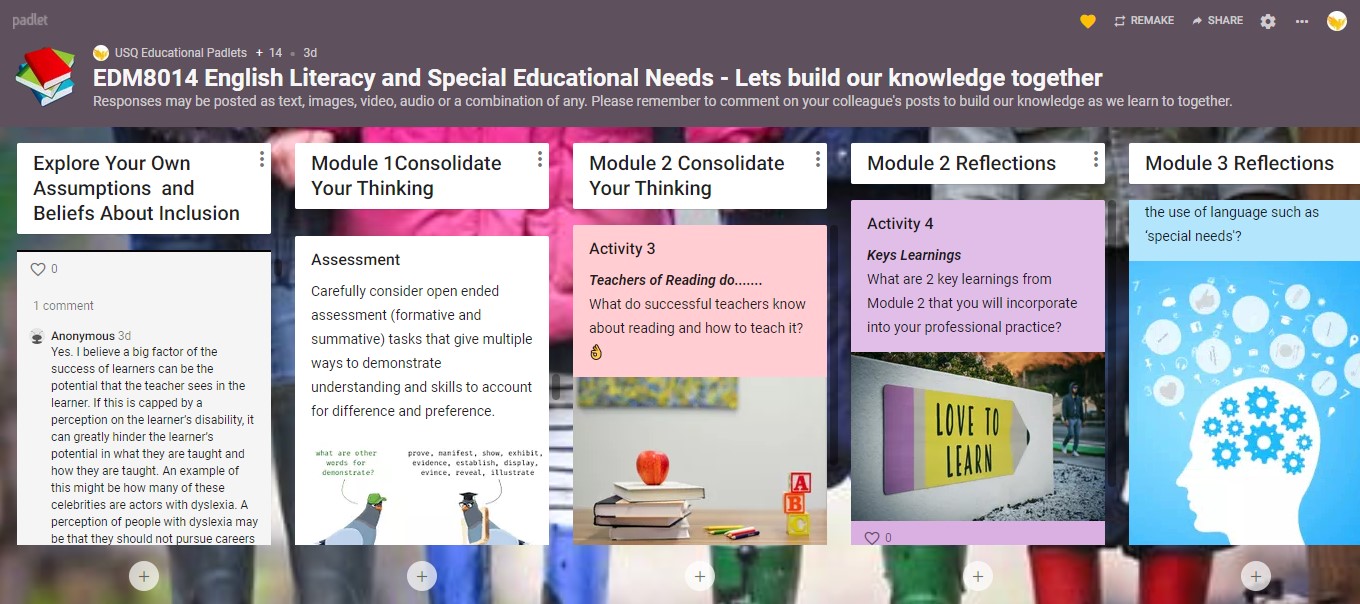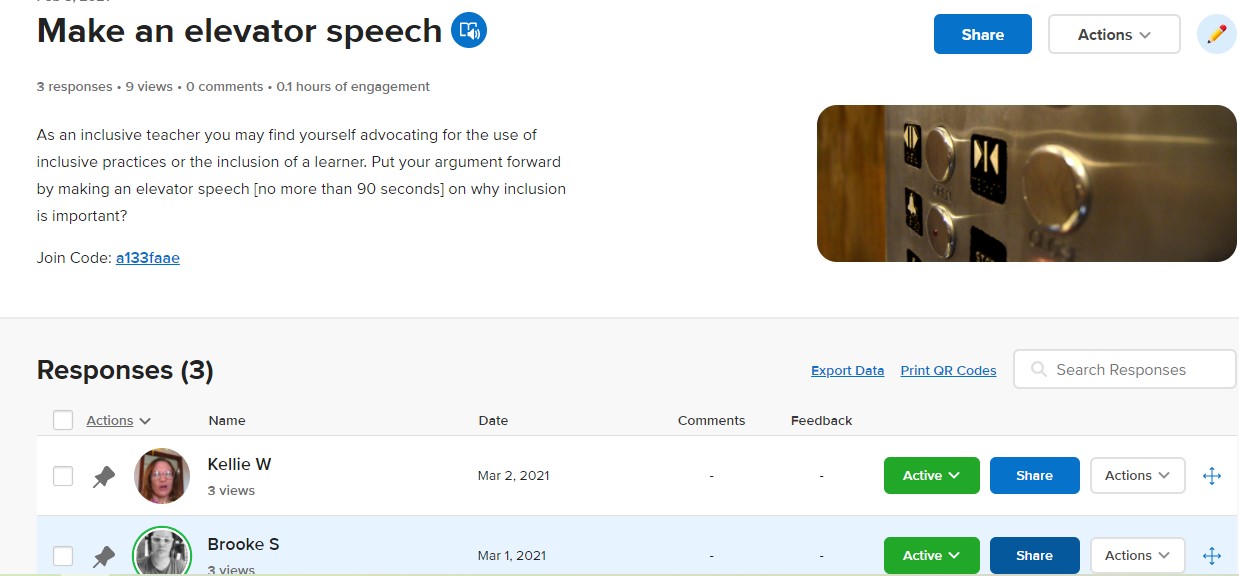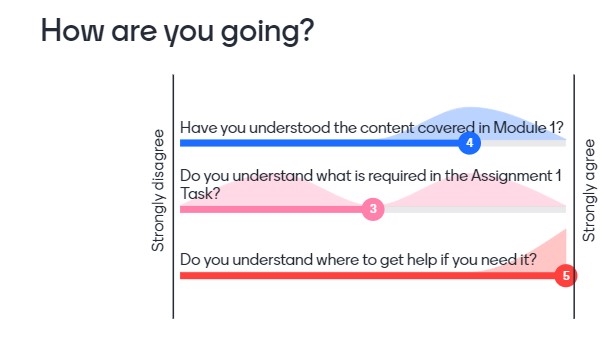TECHNOLOGY DEMONSTRATOR INITIATIVE 2020
Incorporating flipped classroom technologies into StudyDesk to enhance students’ learning experience and promote student engagement
Cecily Andersen (MEd, GCARL, GDipAppLing, DipSpEd/GDipAbEd, BEdSt, DipTeach) is a USQ casual lecturer, course writer and researcher in the School of Education in undergraduate education courses, Masters of Learning and Teaching courses, Master of Education courses and Upskill Professional Conversation courses.
Course and cohort
EDM8014 English Literacy and Special Educational Needs | 60 postgraduate students.
Context
EDM8014 English Literacy and Special Educational Needs is a core course in the newly accredited Master of Learning and Teaching (MELT) program. Students in this program cohort tend to be non-traditional students, many face competing demands, including juggling the demands of study commitments, family responsibility and work commitments, which can impact on student engagement and increase the risk of attrition. As a new course offering, it was decided that EDM8014 be designed to support co-constructed learning by embedding opportunities for student to interact with both teaching staff and other students to support cognitive engagement, and social engagement and connectedness within the cohort.
Description of course design
The aim of this project is to design an online course experience to enhance and facilitate learning and engagement and reduce attrition; to ensure the course content and pedagogy provided is clear, motivating and challenging so that online students receive the same level of support as would face-to-face students; and to expose MELT students to digital pedagogical approaches and tools they can utilise in the future in their own classrooms.
The course has been designed to try to reduce students’ feelings of online isolation by incorporating a suite of asynchronous technologies to promote opportunities to build a class community and a create a sense of belonging for individual students. This newly designed course is being taught for the first time in Semester 1, 2021 which includes the enmeshing of five learning technologies to enhance student engagement based on Redmond et al’s (2018) Online Engagement Framework elements and indicators:
Intervention 1: Padlet for Social, Cognitive and Collaborative Engagement
Used by the course examiner to build community and create a sense of belonging for students through the curation of relevant resources to support course content, and to encourage students to articulate assumptions and beliefs about inclusion, activate metacognition, and gain feedback from others on their learning, and establish trust and develop relationships with peers as a community of learners.


Intervention 2: Flip Grid for Cognitive and Behavioural Engagement
Used for students to complete learning tasks that encourage cognitive engagement through critical thinking, developing deep discipline understandings and justifying decisions, and support behavioural engagement to academic skills and agency, where students can receive feedback from both the course examiner and peers.

Intervention 3: Mentimeter for Behavioural and Emotional Engagement
Used by the Course Examiner to seek student feedback on their learning experience within the first few weeks of the Semester in terms of developing academic skills, navigating the online learning environment, and developing agency as they encounter course content and assessment requirements, as well as helping the Course Examiner assist in supporting student expectations.


Intervention 4: Embedded 360 Video for Cognitive and Emotional Engagement
Used by Course Examiner to expose students to an immersive learning experience where they experience a Neurologically Diverse Person’s ‘Meltdown’. This is designed to challenge students to think critically and recognise their own motivations and assumptions, and feel more connected to their peers as part of this learning experience.
Intervention 5: H5P for Cognitive and Behavioural Engagement
Used by students to undertake a series of short self-check quiz activities throughout the course to test their understanding of course content, and develop academic and multidisciplinary skills.

